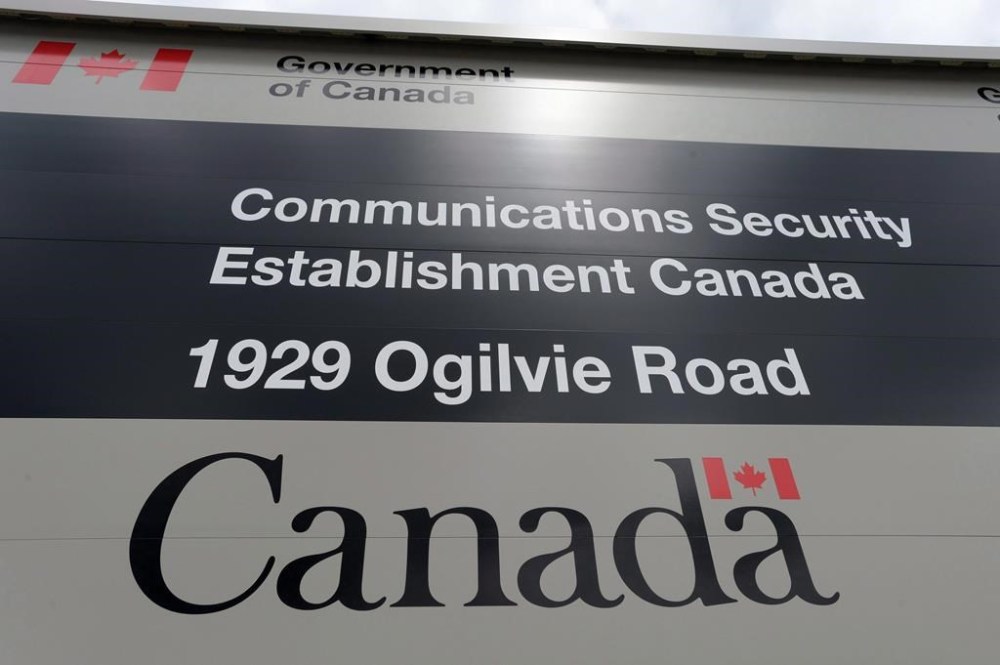Civil society at ‘high risk’ of cyberthreats from state-sponsored actors: CSE
Advertisement
Read this article for free:
or
Already have an account? Log in here »
To continue reading, please subscribe:
Monthly Digital Subscription
$0 for the first 4 weeks*
- Enjoy unlimited reading on winnipegfreepress.com
- Read the E-Edition, our digital replica newspaper
- Access News Break, our award-winning app
- Play interactive puzzles
*No charge for 4 weeks then price increases to the regular rate of $19.00 plus GST every four weeks. Offer available to new and qualified returning subscribers only. Cancel any time.
Monthly Digital Subscription
$4.75/week*
- Enjoy unlimited reading on winnipegfreepress.com
- Read the E-Edition, our digital replica newspaper
- Access News Break, our award-winning app
- Play interactive puzzles
*Billed as $19 plus GST every four weeks. Cancel any time.
To continue reading, please subscribe:
Add Free Press access to your Brandon Sun subscription for only an additional
$1 for the first 4 weeks*
*Your next subscription payment will increase by $1.00 and you will be charged $16.99 plus GST for four weeks. After four weeks, your payment will increase to $23.99 plus GST every four weeks.
Read unlimited articles for free today:
or
Already have an account? Log in here »
Hey there, time traveller!
This article was published 14/05/2024 (540 days ago), so information in it may no longer be current.
OTTAWA – Canada’s cyberspy agency says countries like Russia and China are increasingly targeting non-profit and advocacy groups, as well as journalists and human rights activists.
The Communications Security Establishment issued the warning Tuesday in a joint advisory with the United States, the United Kingdom, Japan, Estonia and Finland.
The advisory says “industry reporting indicates a consistent pattern of state-sponsored cyber actors targeting specific segments of civil society.”

CSE’s Canadian Centre for Cyber Security says in a release there is a growing online threat to civil society, which is at “high risk.”
The advisory identifies the threat as “predominantly” coming from Russia, China, Iran and North Korea.
Targeted civil society groups also include academic, cultural and diaspora organizations, as well as individuals working to advance democracy.
“Often, these organizations and their employees are targeted by state-sponsored threat actors who seek to undermine democratic values and interests,” the advisory says.
The advisory warns that threat actors are using increasingly personalized and subversive tactics, and devoting significant resources to researching their targets.
It says threat actors “compromise organizational or personal devices and networks to intimidate, silence, coerce, harass, or harm civil society organizations and individuals.”
Actors often gain access to networks and devices by using social engineering, which “lures victims to divulge account credentials or download malware,” or by having targets download apps that seem legitimate but actually include malicious software.
“After gaining access to devices, actors often install spyware on the devices,” it says.
Those targeted often have a low capacity to defend themselves — for instance, due to a lack of internal IT support.
“Individuals that fall under the civil society umbrella often rely on insecure channels for communication and need to manage public profiles to advance their work,” the advisory cautions.
“Organizations with low defence capacity are ill-prepared for and vulnerable to common cyberthreats, such as social engineering attempts.”
This report by The Canadian Press was first published May 14, 2024.

